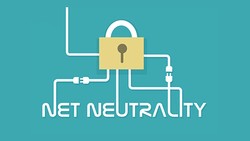Net Neutrality Expired Yesterday – What Comes Next

The FCC voted back in December to end regulations that protected net neutrality on the internet. Yesterday, these regulations officially expired, meaning at this point net neutrality is no more.
There have been a lot of fears regarding this outcome, so it is important to understand what may or may not happen in the future.
To simply things, net neutrality means that internet service providers (ISPs) must treat all internet traffic equally. That means the ISPs cannot throttle or block access to websites and additionally cannot offer paid fast lanes. Essentially under the previous net neutrality regulations, the internet was treated as a public utility, similar to telephone services and running water.
Now that these regulations have ended, it remains to be seen how the ISPs will act in the future. For the record, three of the largest ISPs, Comcast, Verizon, and AT&T have made promises on their websites that they will not do any blocking, throttling, or paid prioritization. One noticeable exception is Charter, the second-largest internet provider in the US, which made no promises regarding paid fast lanes.
Of course, promises on a website are not legally binding, and any of these companies will have the ability to do whatever they want without the FCC regulations. It’s important to remember that there are many sections of the country where only one service provider is available, meaning they can do whatever they want without fear of customers switching to another provider.
From a legal standpoint, there are still options on how these regulations could be revived in the future. 29 states have put forward bills that would reinstate net neutrality in their state, and three states (Oregon, Washington, and California) have already passed these bills into law. Six other states have governors that have made executive orders reinstating net neutrality. Besides this, the future of net neutrality remains unclear. At the federal level, the FCC is unlikely to bring back the regulations, so people will have to rely on Congress to pass laws that protect net neutrality across the country.
